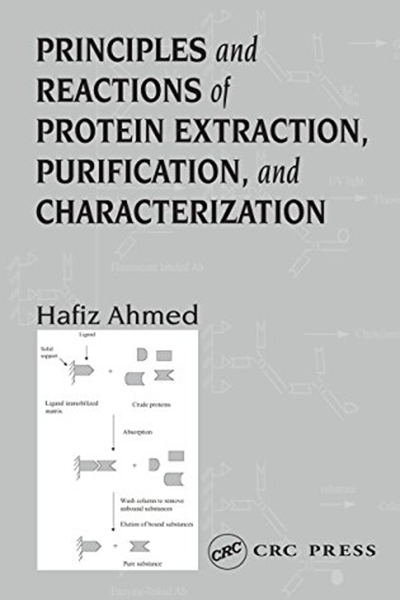transcranial magnetic stimulation mechanism
Previous studies on the mechanism of rTMS mainly focused on the effects of rTMS on neurons such as neuroplasticity and neurogenesis and illustrated some possible mechanisms. Cooray and Cooray 2008 stated that the features of hallucinations experienced by patients having epileptic seizures in the occipital lobe are similar to the observed features of ball lightning.

Transcranial Magnetic Stimulation Therapy Why Do You Need It Transcranial Magnetic Stimulation Stimulation Therapy
Transcranial Direct-Current Stimulation tDCS is a portable wearable brain stimulation technique that delivers a low electric current to the scalp.

. Transcranial magnetic stimulation TMS involves stimulating a particular area of the brain with magnetic pulses but is less invasive than ECT and has fewer side effects. Transcranial magnetic stimulation TMS is a noninvasive form of brain stimulation in which a changing magnetic field is used to cause electric current at a specific area of the brain through electromagnetic inductionAn electric pulse generator or stimulator is connected to a magnetic coil which in turn is connected to the scalpThe stimulator generates a changing electric. One glaring issue is that scientists have yet to figure out the mechanism by which such weak magnetic fields which are still in the microtesla range for homes next to power lines could adversely affect the human body.
Transcranial magnetic stimulation TMS is a non-invasive method of induction of a focal current in the brain and transient modulation of the function of the targeted cerebral cortex. Repetitive transcranial magnetic stimulation rTMS is a recently developed noninvasive brain stimulation method for the treatment of psychiatric and neurological disorders. Li M Yao X Sun L et al.
Cognitive Neuroscience and Neuroimaging and Biological Psychiatry. TDCS is a neuromodulation technique. Companion titles include Biological Psychiatry.
Scientists find brain mechanism responsible for age. And indicated that the therapeutic mechanism of action is related to polysynaptic ie downstream. Pfizer COVID-19 vaccine-associated tinnitus responds to transcranial magnetic stimulation Study shows glomerulonephritis after SARS-CoV-2 mRNA vaccination likely coincidental.
Pain relief with decreased muscle spasm via gate-control mechanism and decreased nerve conduction velocity. In the last decade the field has seen significant advances in the understanding and use of this new technology. TDCS works by applying a positive anodal or negative cathodal current via electrodes to an area.
Like ECT its targeted toward individuals who have not responded well to antidepressants. Repetitive transcranial magnetic stimulation rTMS is a noninvasive and safe treatment for depression but its underlying mechanism has not been fully elucidated. On par with the magnetic field of an MRI is the one produced by a medical procedure known as transcranial magnetic.
Covid-19 Response Information If you are unable to work using your usual lab computers while under quarantine or otherwise maintaining social distancing but still need access to Presentation please click this box for how we can help. This procedure entails placement of an electromagnetic coil on the scalp. A fixed current between 1 and 2 mA is typically applied 1.
The study also showed that the rapidly changing magnetic field of a close lightning flash is strong enough to. Global Open ScienceThe Societys purpose is to promote excellence in scientific. Slower metabolism releases fewer inflammatory mediators.
Restriction of local blood flow reduces the potential for edema to develop. Although its exact mechanism of action is still not clear current evidence points toward its role in causing long-term inhibition and excitation of neurons in certain. Transcranial magnetic stimulation TMS is an evidence-based treatment for pharmacoresistant major depressive disorder MDD.
Transcranial magnetic stimulation Repetitive transcranial magnetic stimulation rTMS uses magnets to activate specific parts of the brain. Biological Psychiatry founded in 1969 is an official journal of the Society of Biological Psychiatry and the first in the Biological Psychiatry family of journals. Transcranial Magnetic Stimulation.
It has FDA approval for treating some forms of depression. High-intensity electrical current is rapidly turned on and off in the coil through the. Transcranial magnetic stimulation TMS is a newer anxiety treatment that uses magnets to create a weak electrical current in the brain.

Personality And Complex Brain Networks The Role Of Openness To Experience In Default Network Efficiency Beaty 2016 Brain Mapping Human Brain Multisensory

Movement Of The Eye Nasally Is Adduction Temporal Movement Is Abduction Description From Emedicine Medscape Com I Search Rectus Muscle Eye Facts Eye Anatomy

Pemf Therapy Pemf Therapy Pemf Pemf Device

Cambridge Fundamentals Of Neuroscience In Psychology Cognitive Neuroscience Of Memory Paperback Walmart Com Neuroscience Psychology Cognitive Psychology

Article Insights From Tms Into Recovery After Stroke Full Text Transcranial Magnetic Stimulation Transcranial Direct Current Stimulation Brain Stimulation

Pin By Cristina Caballero On Tdcs Transcranial Direct Current Stimulation Stimulation Compulsive Disorder

Click On Image To Zoom Transcranial Direct Current Stimulation Cholinergic Sensory Pathways

Nmda Receptor Function In Large Scale Anticorrelated Neural Systems With Implications For Cognition And Schizophrenia Co Nmda Receptor Cognitive Schizophrenia

Springer Handbook Of Auditory Research Tinnitus Series 44 Paperback Walmart Com In 2022 Brain Images Deep Brain Stimulation Transcranial Magnetic Stimulation

Principles And Reactions Of Protein Extraction Purification And Characterization By Hafiz Ahmed Crc Press Crc Press Principles Purification

Neuroplasticity Hopes Huntington S Disease Information Neuroplasticity Transcranial Magnetic Stimulation Neural Connections

Pin By Jerome Lee On Books Neurology Parkinsons Disease Pathology Disease

Home Pemf Therapy Pemf How To Find Out

Fuckyeahnervoussystem Neuroscience Philosophy Of Mind Cognitive Psychology

Neuromorphic Spiking Neural Networks And Their Memristor Cmos Hardware Implementations Information Processing Learning Strategies Networking



